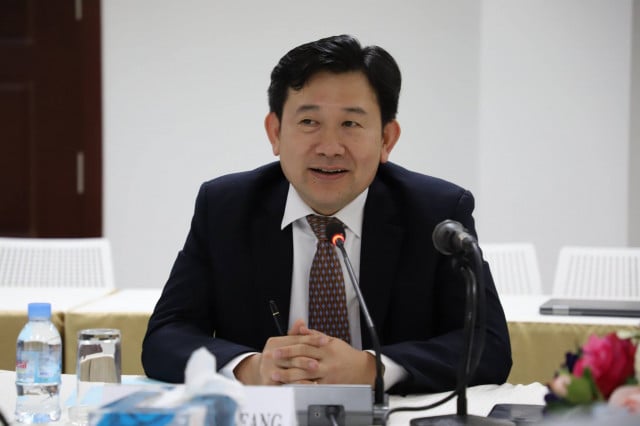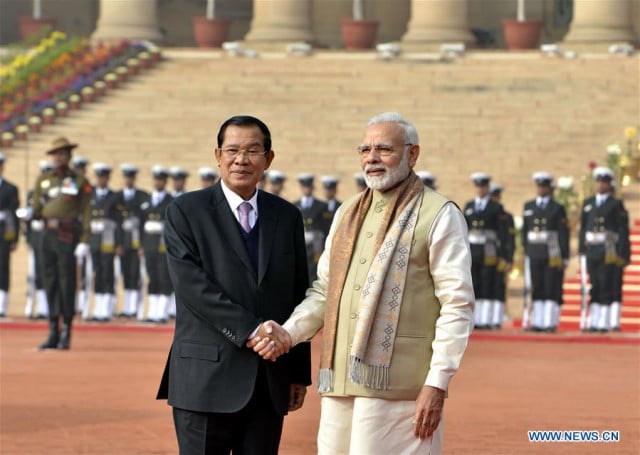Cambodia Abandons 700MW Coal Power Project

- By Torn Chanritheara
- November 30, 2023 2:05 PM
PHNOM PENH – Prime Minister Hun Manet has announced the scrapping of a coal-fired power plant project in Koh Kong province and will instead favor building a natural gas power plant, consolidating the country’s stance on clean energy and goal of carbon neutrality.
He said the current coal-fired power plant in Preah Sihanouk province will cease operations early. The 250MW plant is an investment of a Chinese company.
Cambodia announced its commitment not to build more coal-fired power plants at the United Nation Climate Change Conference (COP26) in 2021 in Glasgow. Hun Manet said this commitment would continue.
Addressing a ceremony marking blockage of the Upper Tatai River to build a 150MW hydropower dam in Koh Kong, Hun Manet also said that his government will not approve any proposal for coal-fired power plants.
“I decided to cancel the 700MW coal-fired power plant project in Botum Sakor district which had been the subject of many studies,” he said.
Hun Manet said that he instructed officials to replace it with an LNG gas-fired power plant since it emits less CO2 than coal.
With the cancellation of the Botum Sakor project, the only coal-fired power plant under development is a 265MW plant in Oddar Meanchey.
The PM also encouraged Cambodians to use electric vehicles which helps increase energy efficiency because electric motors are more efficient than fuel engines while emitting less greenhouse gases.
Environment activist San Mala said that natural gas-fired power is a better short-term solution for people and the environment as it produces 40 percent less carbon than coal power.
He said the government should look at other sources of energy which are less polluting and have little impact on people and the environment.
Heng Kimhong, head of research and advocacy at the Cambodia Youth Network, said that it was good that government scrapped the plan and committed not to expand coal-fired projects.
Kimhong said that the government should explore other clean energy sources beyond hydro dams.
He said that constructing dams in protected areas is also an issue that the government needs to reconsider as the forest must be cleared. He said that forests play an important role in absorbing carbon.
Renewable energy contributes 62 percent of Cambodia’s energy and the government will further increase this to 70 percent in 2030, the PM said.
Energy and Mines Minister Keo Rattanak said last week that hydropower accounted for 40 percent of the total. Solar contributed more than 10 percent. Cambodia also generate energy from biomass and imported it from Lao.
No dam on Mekong River
Hun Manet said that his government will not construct a dam on the Mekong River, maintaining the previous government policy.
“We will not build hydropower directly on the Mekong River although the location will be favorable so as not to affect the ecological environment along the Mekong and Tonle Sap rivers,” he said.
He said the while the country needs electricity, the government also consider the many impacts of the dam and would find another location.
He said the government will protect the environment along with development.
Both Mala and Kimhong praised the government for such policy. Mala said that building a dam on the Mekong would seriously affect food and the movement of fish.
Kimhong said the government should also consider the construction of dams on Mekong’s tributaries as they affected the community in the area.
Meng Seavmey contributed to the story.















